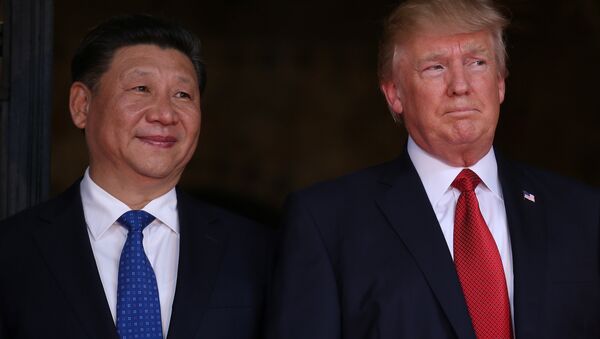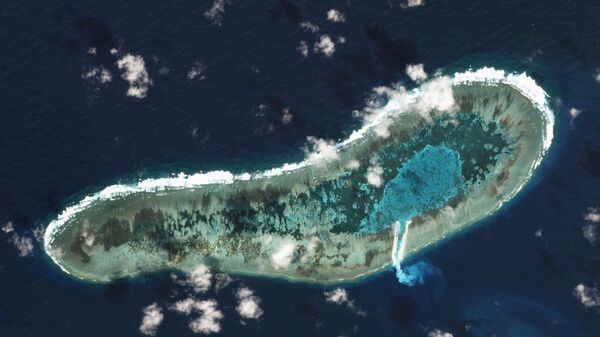On Wednesday, 24th April, the news broke that the USS Dewey — a guided missile destroyer — sailed within 12 nautical miles of the Mischief Reef in the Spratly Islands.
On Thursday afternoon, Chinese Foreign Ministry spokesperson Lu Kang left the world in no doubt as to what Beijing made of the move.
"The US trespassed in the waters…without permission from the Chinese government. The relevant action taken by the US vessel undermines Chinese sovereignty and security interests. We urge the US to correct this mistake."
Such stringent rhetoric from Beijing directed against the US has come as no surprise to regional political analysts. The issue of China's disputed claims in the South China Sea are hugely significant to China, and have long been so. China has been locked in a biter dispute between several neighbors — including Taiwan, the Philippines, Vietnam and Malaysia — over several islands and reefs.
At stake are the potentially trillions of dollars in oil and gas reserves, and lucrative shipping trade lanes.
In 2016, the international arbitration court at the Hague dismissed China's claims to the Spratly islands in particular. However, China has continued unbowed, patrolling the waters and also adding to the islands through artificial land reclamation projects.
The US has not recognized the Chinese claim, and it is not the first time US vessels have sailed through the South China Sea. The USS Dewey's movements are notable though, as the first such incursion since President Donald Trump took office in January 3017. And since then, tensions in the Asia-Pacific region have increased dramatically.
USS Dewey warship sails near South China Sea's Mischief Reef claimed by Beijing https://t.co/IaZiu88XCv pic.twitter.com/iULJhRyljn
— AFP news agency (@AFP) May 25, 2017
On Thursday, Beijing called on Washington to "stop taking provocative actions" so as to "avoid hurting peace and security of the region and long term cooperation between the two countries." It's the state of this cooperation that legislators in the US and bureaucrats in China are now fretting over.
The threat of North Korea looms large. 2017 has seen the pariah regime accelerate it's ballistic missile activity with repeated threats that it is gearing towards a sixth nuclear test.
President Trump has recognized publicly that the Chinese — being Pyonyang's sole ally — is vital towards any solution to the crisis. So it is with confusion that geopolitical analysts have reacted to the news that Trump sanctioned the US challenging the Chinese on the Spratly Islands.
In April 2017, Chinese President Xi Jinping visited President Trump in his sprawling Mar-e-Lago luxury estate in Florida. Extraordinarily, during the meeting, Jinping gave the US president a ten-minute history lesson on the complexity of North Korea.
Trump subsequently hailed "the tremendous progress" made between the two men on tackling global problems, saying "lots of potentially bad problems will be going away."
Trump added that he would relieve pressure on Beijing — after previously deriding China for "raping" the US as currency manipulators — and cooperate with Jinping's government in their attempts to constrain North Korea's missile activity.
Why would I call China a currency manipulator when they are working with us on the North Korean problem? We will see what happens!
— Donald J. Trump (@realDonaldTrump) April 16, 2017
However, the US' latest involvement in China's South China Sea dispute could put this cooperation in jeopardy.
One of the reasons that Kim Jong-Un's regime is so dangerous, is that it is so unpredictable.
Beijing may well be tempted to add Trump's America onto the list of regional actors they now cannot predict.
Following Trump's willingness to act unilaterally, as evident by Trump's military intervention in Syria in April — the Chinese have reason to fear that President Trump may choose to intervene in the Korean peninsula as well.
Such a move could massively destabilize the region even further: not a prospect that President Jinping would relish on his own doorstep.



